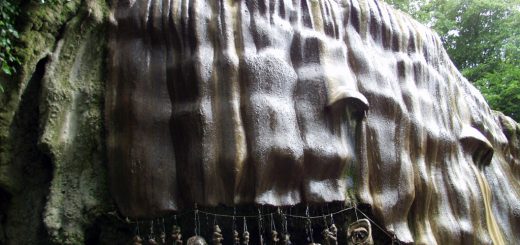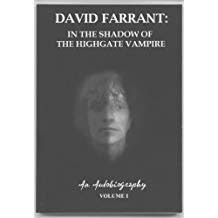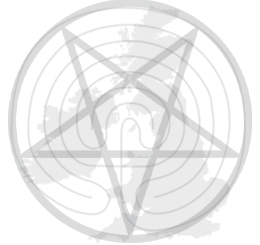Roger Bacon
Roger Bacon was a friar living in 13th century England who, hundreds of years after his death became popularly known as a powerful sorcerer. He is most widely known among scholars as being one of the first people to use experimental methods in alchemy – the root of modern chemistry – and is also known for his application of geometry to the science of lenses, and early experiments in gunpowder.
 From his writing, and the events in his life, it is possible to see two sides to the man: a remarkably driven experimental scientist compared with his contempories, but also a man heavily influenced by the spiritual side of life reflected in his early leanings towards philosophy and his attachment to the Franciscan order. He was also remarkably outspoken for his day and was often on thin ice with his superiors.
From his writing, and the events in his life, it is possible to see two sides to the man: a remarkably driven experimental scientist compared with his contempories, but also a man heavily influenced by the spiritual side of life reflected in his early leanings towards philosophy and his attachment to the Franciscan order. He was also remarkably outspoken for his day and was often on thin ice with his superiors.
Roger Bacon was born in Ilchester in Somerset in the year 1214, it seems likely that he showed scholastic talent at an early age, his natural leaning in his younger years towards philosophy – especialy Greek philosophy of Aristotle. He also studied geometry, astronomy and mathematics. Roger moved to Paris around 1234, gaining a degree from the University of Paris around 1241, after which he started lecturing on the ideas and theories of Aristotle.
Roger returned to Oxford from Paris around 1247, from where his interest in the sciences developed further. He experimented with lenses as an aid to correcting human vision – one of his more famous associations – following in the footsteps of Robert Grosseteste (the bishop of Lincoln). His experiments relied on modern experimental observation and recording, and became exaggerated into supernatural feats later in the 16th century, when many popular books were published about his powers.
In 1257 he seems to have undergone some kind of spiritual upheaval, during which he retired from public life and joined the Franciscan Order, a decision that was to bind him tightly from what could have been a more influential life.
In Roger’s day and age many of the sciences were interrelated with the beliefs of magic; alchemy is the root of modern chemistry and Roger was a practicing alchemist. As an alchemist he believed in the elixir of life and was probably involved in trying to create the philosophers stone. These practices and beliefs were not to endear him with his superiors in the Order of St Francis, and in that suspicious age the weight of heresy was bound to descend upon his shoulders.
He was actually banned from writing until 1266, when he was requested to write on the orders of Pope Clement IV. He wrote his three-part work Opus Majus, (Great Work) Opus Minus (lesser work) and Opus Terilium (Third Work), writing each book in secret (because his superiors were opposed to his ideas) and finishing them in less than two years.
This was a remarkable achievement, denoting a drive and spark of genius that probably never had the chance to flame properly, due to the restrictions imposed on him by his order. The Opus Majus was the largest of the three and consisted of recourse on the experimental sciences and the common ground between philosophy, mathematics religion and other sciences. His experiments methods place him well above the shoulders of his contempories even if his ideas are now outdated. Like many writers slightly at odds with a given consensus his books stoked the fires of intolerance, and the last years of his life were spent in prison accused of promoting dangerous demonic ideas. It is surprising that he was not burned at the stake if these accusations were believed. This incarceration lasted from around 1277 to 1291, and one year after he was released he died in relative obscurity.
Much of the legendary material about Roger Bacon was attributed to him after his death. The 16th century was when his fame as an occultist really flowered, along with the expansion Renaissance magic, and popular astrology in Elizabethan England. A book called The History of Friar Bacon appeared, which amalgamated popular tales about him, expanding his fame to a larger audience. The book is based on his legendary life in which he is called before the King to show his occult prowess. There was even a play about his exploits by the playwright Robert Green.
The projection of occult powers and sorcery on to famous figures by the populace – many long dead – was common and sometimes (in the case of John Dee) well founded. Many of the stories have a certain element of truth, for example his experiments with lenses becomes a story about a magical glass with which he could see into the future. While his prophetic discourse on the discoveries of mechanical science, morphed into a tales about a bronze head he is said to have created which uttered prophesies.
It is possible that he may have had greater influence if he was allowed to write freely and develop all his ideas as far as he did with his theories on optics.





Recent Comments